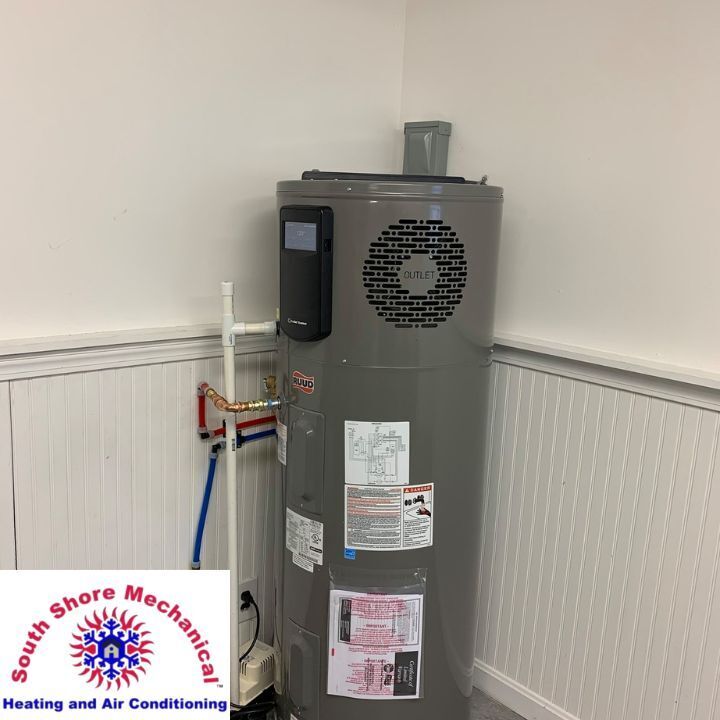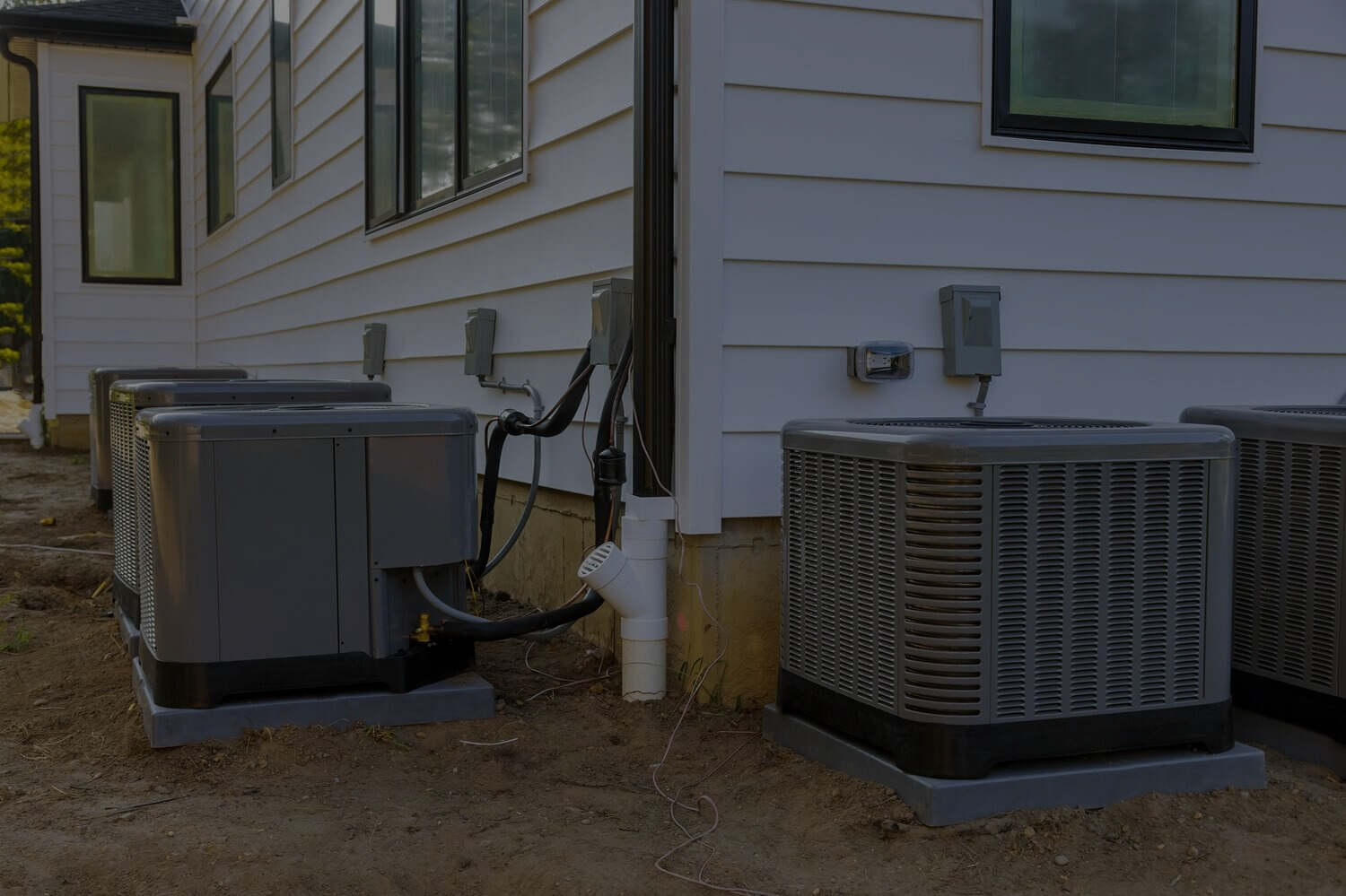
-
support
-
Blog
-
0 Comments
-
February 11, 2025
Leaking Boiler: Troubleshooting Overflow Pipe, Condensate, and Other Common Boiler Leaks
A leaking boiler isn’t just wasting water. It could be a sign of excess pressure, a broken component, or corrosion inside your system. Whether you’re seeing a dripping overflow pipe, a faulty valve, or signs of pressure buildup, it’s important to find the cause before it gets worse.
So, what’s the cause? From damaged seals to a defective overflow pipe, leaks can happen for a variety of reasons. Some are easy fixes, while others require professional help. Before you start worrying, find out the most common reasons your boiler is leaking and what you can do about it. Keep reading for expert advice from South Shore Mechanical.
Why Is Your Boiler Leaking Water?
If you’ve spotted water under boiler pipes or a slow drip coming from a valve, don’t ignore it. It can start small but quickly lead to serious damage. In most cases, leaks happen because of high pressure, worn-out seals, or corrosion inside the system. In certain boiler designs, such as cyclone boilers, the average number of tube leaks per year can be as high as 18.5.
Sometimes, leaks come from specific components, like the condensate pipe leaking due to a clog or a boiler leaking water from overflow pipe when the pressure gets too high.
Recognizing Early Warning Signs of a Leaking Boiler
Catching a leaking boiler early can save you from expensive repairs. Look for these warning signs:
- Puddles or damp spots around the boiler
- Sudden drops in boiler pressure
- Hissing or dripping sounds
- Corrosion or rust near pipes and fittings
- Uneven heating in your home
Regular maintenance is important as more than one gallon of water loss per unit in a building generally indicates a leak.
Most Common Boiler Leaks and How to Fix Them
Different parts of the boiler can leak for different reasons. Some leaks, like those from pressure relief valves, are caused by excess pressure. Others, like a condensate pipe leak can be the result of blockages or freezing in colder months.
Overflow Pipe Leaks
| Cause | Solution |
| High pressure inside the boiler | Reduce pressure by bleeding radiators or adjusting the pressure relief valve |
| Damaged relief valve | Replace the valve if it keeps dripping |
If water is leaking from the overflow pipe, check your boiler’s pressure gauge. If it’s too high, releasing pressure might help.
Condensate Pipe Leaks
| Cause | Solution |
| Blocked or frozen pipe | Clear the blockage or thaw the pipe with warm water |
| Loose connection | Tighten or replace the connection if it’s leaking |
The condensate pipe carries acidic wastewater from the boiler. If it gets clogged, water can back up and cause a leak.
Leaks from Pipe Joints or Seals
| Cause | Solution |
| Worn-out seals | Replace defective seals |
| Loose fittings | Tighten pipe joints |
Leaks around pipe joints are common in older boilers. A technician can replace worn seals to stop the leak.
Pressure Relief Valve Leaks
| Cause | Solution |
| Boiler pressure too high | Reduce system pressure |
| Damaged valve | Replace the relief valve if it won’t close properly |
If this valve is constantly dripping, your boiler may be running at an unsafe pressure level.
Expansion Vessel Leaks
| Cause | Solution |
| Over-pressurized expansion tank | Adjust pressure or replace the expansion vessel |
| Damaged diaphragm | Replace the expansion vessel if the internal diaphragm is worn out |
The expansion vessel helps manage pressure changes inside the boiler. If it fails, leaks can develop.
Pump Seal Leaks
| Cause | Solution |
| Worn or damaged pump seal | Replace the seal |
| Loose connections | Tighten pump fittings |
If the pump is leaking, a failing seal is often the problem. Replacing it should stop the leak.
Heat Exchanger Leaks
| Cause | Solution |
| Corrosion from minerals in water | Replace the heat exchanger |
| Structural failure | Full boiler replacement may be necessary |
A leaking heat exchanger is a serious problem. In many cases, replacing the boiler is the best option.
What Should I Do If My Boiler Is Leaking Water?
If you spot a leaking boiler, shut it off immediately to prevent further damage. Check the pressure gauge and look for visible leaks around pipes, valves, and the heat exchanger. If the leak is small and coming from a connection, tightening it may help.
If the leak is coming from a major component or getting worse, it’s best to call a professional. Trying to fix complex boiler issues without the right knowledge can lead to bigger problems.
Prevent Boiler Leaks with Routine Maintenance
The best way to avoid leaks is to keep up with regular boiler maintenance. A professional service once a year can help spot worn-out parts, pressure issues, and minor leaks before they turn into repairs or worse, replacement. A study found that nearly 40% of boiler incidents are caused by human error or poor maintenance.
Our experts recommend an annual boiler inspection to keep it in great shape. If your boiler is older, more frequent maintenance might be needed to prevent unexpected breakdowns. During a checkup, a technician will look for leaks, clean internal components, and test the system to make sure everything is working correctly.
Stop Boiler Leaks with South Shore Mechanical
Your boiler isn’t supposed to leak and when it does, it’s a warning sign you can’t afford to ignore. If you’ve noticed drips, pressure issues, or odd noises, now’s the time to act. South Shore Mechanical has the expertise to fix it fast. Call (508) 631-9609 today to stop the problem before it gets worse!
FAQS about Furnace Loud Noises and Sounds
- Can a leaky boiler be dangerous?
Yes, a leaky boiler can be dangerous. Water leaking near electrical components increases the risk of short circuits and potential fire hazards. Excess moisture can also cause mold growth which affects indoor air quality.
- How do I know if my Boiler pressure Is too high?
You can check your boiler pressure by looking at the pressure gauge, usually found on the front of the unit. Most boilers operate best between 1 and 1.5 bars. If the gauge reads above 2 bars or enters the red zone, the pressure is too high. This can strain the system and cause leaks.
- What happens if I don’t repair a dripping boiler?
Leaks can cause corrosion inside the boiler that can reduce efficiency and lead to expensive repairs or a full system replacement. Water exposure can also damage surrounding walls, floors, and ceilings. If the leak is linked to pressure issues, it may indicate a larger problem that could cause the boiler to shut down unexpectedly.
- Can a leaky boiler cause damage to my home?
Yes, even a slow leak can cause damage if left ignored. Water pooling around the boiler can seep into floors and walls, leading to warping, staining, and mold growth. If the leak is near wooden structures, prolonged exposure may weaken them, causing rot.
- How do I stop my boiler from leaking?
The first step is to turn off your boiler to prevent further damage. If the leak is coming from a loose connection, tightening the fitting may stop the drip. However, if the leak is coming from a valve, internal pipe, or heat exchanger, a professional repair is necessary. Mopping up standing water and checking your pressure gauge can help diagnose the issue, but attempting a complex fix without experience can make things worse.
- Can I still use my boiler if it’s leaking water?
It’s not safe to continue using a leaking boiler. Running the system while it’s leaking can put extra strain on internal components. If water reaches electrical parts, it creates a safety hazard. It’s best to turn the boiler off and schedule a repair as soon as possible.
- How can I identify where the leak is coming from on my boiler?
Start by visually inspecting the boiler and the area around it. Check for water under boiler pipes, damp spots near connections, or dripping from specific components like the pressure relief valve or heat exchanger. If the leak is coming from the overflow pipe, it’s likely a pressure issue. A condensate pipe that’s leaking could indicate a blockage or freeze.

